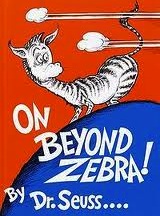
Don’t Shoot! It’s an ‘Empathy Game’.
August 18, 2013
A new generation of Video games, which are telling a story are pumping empathy as opposed to adrenaline. http://online.wsj.com/article/SB10001424127887324
769704579010641205335768.htmlWSJ
I welcome the arrival of the video game industry to the world of story telling which is how children learn empathy. Man is a storytelling animal who needs stories to help us understand others and ourselves. Stories create connections between a reader and a character and the empathy that comes from those connections help us be more human and often bring a therapeutic effect for a person struggling with a challenge.
Empathy and perspective springs from the experience of reading and talking about a story and permits children to understand their own and other people’s feelings. A good story allows you to step inside a character’s shoes and feel and think what they are experiencing.
Children need to have high literacy skills, the use and command of language, so they can tell their own stories and understand the stories of other. Stories help us regulate our emotions, consider consequences, think before acting, and consider how others feel, all of which help us thrive in all aspects of our lives.
The relationship between parent and child is part of the reading experience. Parents who Conversationally Read— read and talk about a story with children— feel more connected to their children and more satisfied in their role as a parent. In turn, the reading experience for the child gives a clear message they are loved and understood. This is how we help children thrive and reach their full potential.
Readers bring books to life.
August 9, 2013
P.L. Travers, author of the well loved Mary Poppins would be 113 years old today. In addition to creating one of the most well known and loved character in a children’s book, she wrote extensively about the power and influence story has on our lives. Travers informed my long held belief that a book is […]
Begin the school year with a mindset that encourages excitement about learning.
August 8, 2013

We live in an age of information. We are inundated by it. Too much information can swamp the boat of wonder, especially for a child. Creative & critical thinking depends crucially upon habits of mind that are most readily acquired by children: curiosity; voracious observation; sensitivity to rules and variations within the rules; and fantasy. […]
Vocabulary and achievement in life
July 24, 2013
Children entering school with a vocabulary of 22,000 words have a distinct advantage over the child who enters school with a vocabulary of 2,000 words. The child with the lower vocabulary is word improvised and that does not bode well for attaining success in school. Many of the skills a child needs to get ready […]
A little bit of brain science is money in the bank for parents
July 16, 2013
The value of reading fiction is receiving much attention these days and research suggests that people who read fiction are better at thinking creatively and they have more insight about others and their perspectives. In addition, brain science tells us that fiction, reading and talking about a story is an activity that helps integrate the […]

